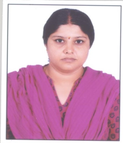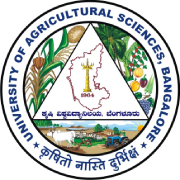ZARS, BANGALORE
Mandates
- Basic and strategic research to augment the productivity, oil content and quality of sunflower.
- Information management on oilseeds to develop policy. framework for research and development strategy.
- Coordination of applied research on national and regional issues to develop location specific varieties and technologies.
- Dissemination of technology and capacity building.
- Maintenance breeding of parents of hybrids.
- To develop region-specific high yielding varieties/ hybrids with resistance to biotic and abiotic stresses.
- To develop economically viable production and protection technologies to augment the production.
On Going Research Programmes
- Biotechnological interventions for developing hybrids resistant to biotic and abiotic stresses.
- Developing agronomically superior hybrids with diversified CMS source tolerant to major pests & diseases.
- Development of suitable forewarning systems to promote forecast – based pest & disease management.
- Development & Popularization of technologies for diversified uses of sunflower.
- Optimization of best management practices for maximizing economic yield.
- Screening of sunflower entries resistant or tolerant against pests and diseases to be used in breeding programmes for higher seed and oil yield.
- On farm testing of DOR Bt 127 against defoliators and capitulum borer of sunflower.
Thrust Areas of Research
- Augmentation, evaluation and characterization of genetic resources.
- Basic, strategic and applied research to increase productivity and oil content.
- Socio-economic research for assessing the sustainability of the technologies.
- Coordination of multilocation research programmes to develop hybrids and technologies of state and national importance
- Evaluation of Organic Pest Management practices against major pests and diseases of Sunflower.
Research accomplishments
- UAS, Bangalore was the first in the country to give a thought and initiate work on heterosis breeding for the development of sunflower hybrids.
- The centre has developed and released 2 varieties EC 68415 in 1974 and Morden in1978 and 7 hybrids viz, BSH 1 in 1980,KBSH-1 in 1992 and KBSH-44 in 2002 at National level; KBSH-41 & KBSH-42 in 2001 powdery mildew
resistant KBSH-53 in 2008 and KBSH 78 in 2018 for Karnataka state. - In addition, KBSH-71, KBSH-72, KBSH-73, KBSH-74,KBSH 79,KBSH 84 and KBSH 85 were found promising in All
India Co-ordinated trials and are in pre-release stage.
Commercialisation Of Sunflower Hybrids
- KBSH-41 commercialized with M/s East African Seed (U) Ltd., Kampala, Uganda during 2015.
- KBSH-79 and KBSH-44 commercialized with Mahyco Pvt Ltd during 2018.
- KBSH-53 commercialized with Invicta Agritech Pvt Ltd during 2020.
Crop Production & Protection Technologies:
- Response of sunflower for application of Zinc Sulphate and Borax.
- For Kharif sunflower on Alfisols, fertilizer is the most important constraint followed by thinning and weeding for realizing higher sunflower production and profitability.
- Use of bio-fertilizer Azotobacterchrococcumasseed treatment (150g /kg seed) in Sunflower (Zone-4 &5).
- In Alfisols at Bengaluru, Sunflower responds significantly and economically up to 120 kg N and 90 kg P2O/ha.
- Re-assessment of fertilizer recommendation (90:90:60 v/s 60:75:60 kg NPK/ha) for sunflower (Zone-4 & 5).
- Growing legumes preceding sunflower can save 25 kg/ha of nitrogen with an increase of 17% higher yield and a higher B:C ratio of 2.22 Vs 1.79 without growing legumes in Alfisols in southern dry zone Karnataka.
- Soil test based fertilizer application with balance fertilization with NPK has resulted in 33% higher seed yield and a B:C ratio of 2.03 over farmer’s practice (1.72).
- Application of 100% RDF +5t FYM/ha for groundnut in Kharif and application of 100% RDF for succeeding Rabi
sunflower increased the system yield (16%) and system economics (B:C ratio of 2.77) in Alfisols in southern Dry
zone of Karnataka. - Management of Alternaria leaf spot: Spraying Dithane– M-45 or Dithane-Z-78 (@2.5g/L) at 20, 40 and 60 DAS.
- Management of downy mildew: Seed treatment with Apron 35SD (metalaxyl compound) @ 5 g/kg of seeds before sowing.
- Management of sunflower necrosis virus disease: Seed treatment with Imidacloprid 70WS @ 5 g/kg, just before sowing + spraying imidacloprid 200SL (@0.5ml/L at 25 & 45DAS.
- IPM module to manage pest complex in sunflower.
- Management of defoliators in sunflower: One need based spray application of Profenophos 50 EC (@1ml/lit.)in the pre-flowering stage for the management of defoliators in sunflower.
- Management of sunflower necrosis virus disease: seed treatment with thiomethoxam (cruiser) @4g/ka seed and sprays of thiomethoxam @ 0.05% at 30 and 45 DAS.
- Management of Powdery mildew: Spray wettablesulphur 80WP @ 0.3% or difenoconazole 25EC @ 0.05% as soon as the symptoms appear and at 15 days interval depending upon the severity of the disease.
- Management of capitulum borer(Helicoverpaarmigera): Two spray applications of Spinosad 45SC @1 ml/ 10 lit. first at star bud stage and second spray 15days later for the management of Helicoverpaarmigeraas an alternative to endosulphan 35EC (2 ml/lit.).
- (B:C ratio of 2.77) in Alfisols in southern Dry zone of Karnataka.
Staff of Directorate of Extension

Dattatraya Bhat
Technical Assistant
9449132968


Dr C P MANJULA
Assistant Professor (Jr Pathologist)
9916930120



-
- ಪುಟ ಸಂದರ್ಶಕರ ಸಂಖ್ಯೆ:
- ಕೊನೆಯದಾಗಿ ನವೀಕರಿಸಲಾಗಿದೆ:
- ಸೈಟ್ ಅಂಕಿಅಂಶಗಳು
© ಈ ವೆಬ್ಸೈಟ್ ಯುಎಎಸ್, ಬೆಂಗಳೂರು, ಸರ್ಕಾರಕ್ಕೆ ಸೇರಿದೆ. ಕರ್ನಾಟಕ, ಭಾರತ – 560 065




